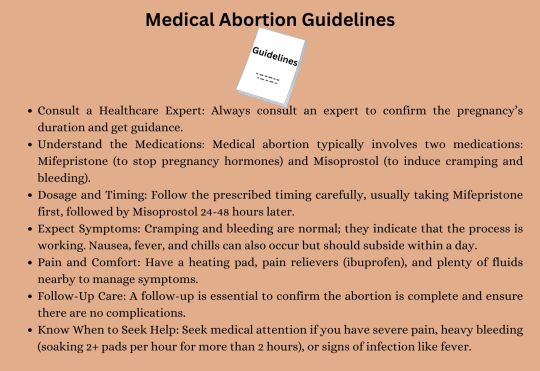#HealthAwareness
Explore tagged Tumblr posts
Text
Understanding Thyroid Disorders: Signs You Shouldn’t Ignore
The thyroid is a small, butterfly-shaped gland in the neck that plays a vital role in regulating metabolism, energy levels, and overall well-being. When the thyroid malfunctions, it can lead to various health complications that often go unnoticed until they become severe. Understanding the symptoms of thyroid disorders can help in early diagnosis and timely treatment, improving quality of life.
Common Thyroid Disorders
There are several types of thyroid disorders, but the most common ones include:
Hypothyroidism (Underactive Thyroid): When the thyroid gland produces insufficient hormones, leading to slow metabolism and fatigue.
Hyperthyroidism (Overactive Thyroid): When the thyroid produces excessive hormones, causing rapid metabolism and unintentional weight loss.
Thyroid Nodules: Lumps or growths in the thyroid that may or may not be cancerous.
Goiter: An enlarged thyroid gland, often caused by iodine deficiency or autoimmune diseases.
Thyroid Cancer: A rare but serious condition that requires immediate medical attention.
Signs You Shouldn’t Ignore
Recognizing thyroid disorder symptoms early can prevent severe complications. Here are some key warning signs:
Symptoms of Hypothyroidism (Underactive Thyroid)
Unexplained Weight Gain: Despite normal diet and exercise.
Fatigue and Weakness: Feeling tired even after sufficient sleep.
Cold Sensitivity: Always feeling cold, even in warm environments.
Dry Skin and Hair Loss: Thinning hair, brittle nails, and dry skin.
Depression and Brain Fog: Trouble concentrating, forgetfulness, and mood swings.
Constipation: Slowed digestion leading to irregular bowel movements.
Symptoms of Hyperthyroidism (Overactive Thyroid)
Unexplained Weight Loss: Losing weight rapidly without changes in diet.
Rapid Heartbeat and Palpitations: A fast or irregular heartbeat.
Anxiety and Irritability: Feeling restless and agitated.
Heat Sensitivity: Excessive sweating and difficulty tolerating warm temperatures.
Tremors: Shaky hands or fingers.
Frequent Bowel Movements: Increased frequency of stools.

Seeking Medical Help and Long-Term Care
If you experience multiple symptoms, it’s important to consult a doctor for a proper diagnosis. A simple blood test measuring thyroid hormone levels can confirm whether you have a thyroid disorder.
In some cases, managing thyroid conditions may require specialized medical care, especially for elderly patients or those with additional health concerns. A rehabilitation center in Bangalore can provide support for individuals recovering from severe thyroid-related complications, ensuring they regain strength and mobility. Additionally, for those who require long-term care, palliative care and rehabilitation services can help improve comfort and quality of life.
For personalized care and expert medical support, consider Avanta Healthcare Center helping you or your loved ones manage thyroid health with compassion and expertise.
Managing Thyroid Health
Balanced Diet: Foods rich in iodine, selenium, and zinc support thyroid function.
Regular Exercise: Physical activity helps regulate hormones and maintain a healthy metabolism.
Stress Management: Meditation and yoga can reduce stress, which is crucial for thyroid health.
Medication & Treatment: If diagnosed with a thyroid disorder, proper medication and lifestyle changes can help manage symptoms effectively.
Final Thoughts
Thyroid disorders can significantly impact daily life if left untreated. Individuals can manage their condition and prevent complications by recognizing the symptoms early and seeking medical help. Whether it’s through lifestyle changes, medical treatment, or specialized care at a rehabilitation center in Bangalore, taking proactive steps can lead to better health outcomes.
Avanta Healthcare Center offers comprehensive solutions, from rehabilitation and palliative care to ICU setup and nursing care at home. Seeking the right support can improve health and overall well-being.
#ThyroidHealth#ThyroidDisorders#Hypothyroidism#Hyperthyroidism#Healthcare#Rehabilitation#PalliativeCare#HomeCare#ICUatHome#NursingCare#AvantaHealthcare#HealthAwareness#Metabolism#StayHealthy
4 notes
·
View notes
Text
#EndoAwareness#ChronicPain#Women'sWellness#InvisibleIllness#HealthJourney#EndoFacts#EndoCommunity#MedicalAwareness#HormonalHealth#PainManagement#EndoSupport#AwarenessCampaign#HealthAdvocacy#EndoSymptoms#Endometriosis#Women'sHealth#HealthAwareness#ChronicIllness#ReproductiveHealth#PelvicPain#Infertility#HealthEducation#EndoWarrior#MedicalConditions#SupportAndAwareness#HealthyLiving#EndoJourney
2 notes
·
View notes
Text

🌸 Struggling with PCOS Symptoms? 🌸
Do you experience any of these?
❗️Painful pimples ❗️Stretch marks ❗️Irregular periods ❗️Low energy or feeling irritable ❗️Increased hair fall & facial hair growth
PCOS can affect your physical and emotional health. Don't ignore the signs!
📞 Consult a Gynecologist today for expert medical advice. Call: 9900811118
Your health matters, and you're not alone. Reach out now! 💖
2 notes
·
View notes
Text

Check out the Medical Abortion Guidelines.
👉https://privacypillrx.com
#florida
#ᴀʙᴏʀᴛɪᴏɴɪsʜᴇᴀʟᴛʜᴄᴀʀᴇ#selfcare#selfcaretips#choice#mybodymychoice#privacymatters#medicare#healthawareness#awareness#floridastate#texas#pregnant#pregnancy#usa
3 notes
·
View notes
Text
Understanding Human Metapneumovirus (HMPV): Treatment, Symptoms, and Effects on Children and Adults
Learn about Human Metapneumovirus (HMPV): its symptoms, treatment options, and impact on all age groups. Expert care and guidance at Mukat Hospital.
#HMPV#HMPVVirus#RespiratoryHealth#ViralInfections#LungHealth#StaySafe#HealthAwareness#VirusPrevention#ProtectYourLungs#PublicHealth
2 notes
·
View notes
Text
Can you die in your sleep from a migraine?
Migraines are more than just headaches — they are complex neurological conditions that can cause intense pain, nausea, sensitivity to light and sound, and even visual disturbances. If you or someone you know suffers from migraines, you may have wondered: Can a migraine be fatal, especially during sleep? The short answer is, while extremely rare, migraines themselves are not usually life-threatening. However, in some cases, migraines can be associated with conditions that pose serious risks.
Understanding Migraines and Their Impact
Migraines are caused by changes in the brain’s blood flow and nerve activity. During a migraine attack, certain chemicals in the brain are released, causing inflammation and changes in blood vessels. While migraines themselves are not fatal, complications or underlying conditions linked to them could lead to severe outcomes.

Rare but Serious Risks Associated with Migraines
Although migraines are not directly life-threatening, there are some rare conditions related to migraines that could become dangerous. These include:
Stroke: Migraines, particularly those with aura, may slightly increase the risk of ischemic stroke. A stroke can occur when the blood supply to the brain is disrupted, potentially leading to life-threatening complications.
Migrainous Infarction: This is a rare condition where a migraine with aura results in a stroke. It requires immediate medical attention.
Seizures: In some cases, severe migraines can trigger seizures. If you have both migraines and epilepsy, it’s essential to consult an Epilepsy Specialists Doctor in Shalimar Bagh for comprehensive care.
Sleep Apnea and Migraines: Sleep disorders like sleep apnea can exacerbate migraines and pose additional risks to overall health. Addressing sleep-related issues is an important part of managing migraines.
How to Stay Safe During a Migraine
While the idea of dying in your sleep from a migraine is extremely unlikely, it’s still important to take precautions, especially if your migraines are severe or frequent. Here are some tips:
Monitor Your Symptoms: Keep track of your migraine patterns. If you notice any unusual or worsening symptoms, consult the best neurology doctor in Delhi immediately.
Seek Timely Treatment: Don’t ignore frequent or severe migraines. The best neuro doctor in Delhi can help you find effective treatments to reduce the frequency and severity of attacks.
Address Underlying Conditions: If you have other health conditions like epilepsy or sleep apnea, managing them can significantly reduce migraine-related risks. Visit an Epilepsy Specialists Doctor in Shalimar Bagh for expert advice.
Migraine Treatment Options
Managing migraines requires a combination of lifestyle changes, medication, and sometimes advanced therapies. Here are some common treatments:
Medications: Pain relievers, preventive drugs, and medications to treat nausea are commonly prescribed. A Migraine Specialist Doctor in Shalimar Bagh can help you determine the best medications for your condition.
Lifestyle Changes: Stress management, regular exercise, and maintaining a consistent sleep schedule can reduce migraine triggers.
Advanced Therapies: In some cases, treatments like Botox injections or nerve stimulation may be recommended. Consulting the best neuro physician in Delhi can help you explore these options.

When to Seek Emergency Help
If you experience any of the following symptoms during a migraine, seek emergency medical attention immediately:
Sudden and severe headache that feels different from your usual migraines
Weakness, numbness, or difficulty speaking
Loss of consciousness
Seizures
These symptoms could indicate a stroke or another serious condition requiring immediate care. Don’t delay in seeking help from the best neurology doctor in Delhi or a nearby clinic.
Comprehensive Care for Migraines and Neurological Disorders
Finding the right specialist is key to managing migraines and their associated risks. Whether you’re looking for the Best Epilepsy treatment in Shalimar Bagh or expert care for migraines, having access to an experienced doctor can make all the difference.
If you’re based in Delhi, you’ll find excellent options for neurological care. The Migraine Treatment in Shalimar Bagh includes personalized plans to address the root causes of your migraines and improve your quality of life.
Conclusion
While the idea of dying from a migraine in your sleep is extremely rare, it’s essential to understand the risks associated with migraines and seek timely care. Migraines are not just headaches; they are serious neurological conditions that require proper management. By consulting specialists like the best neurologist in Delhi or the migraine specialist doctor in Shalimar Bagh, you can find relief and reduce the risk of complications.
Remember, taking control of your migraines begins with understanding them and seeking help from trusted experts. Whether it’s advanced Migraine Treatment in Shalimar Bagh or comprehensive care from the best neuro doctor in Delhi, there are solutions to help you live a healthier, pain-free life.
#health & fitness#neurology#bestneurologistindelhi#delhidoctors#epilepsyawareness#dementiacare#epilepsytreatmentindelhi#neurologist#healthawareness#brainhealth#headpain#headache
2 notes
·
View notes
Text

The pandemic isn’t over for everyone. Long COVID affects 17 million U.S. adults, causing fatigue, brain fog, and nerve pain. Learn more about its long-term effects and how it impacts lives.
#LongCOVID#PublicHealth#COVID19#ChronicIllness#PandemicImpact#HealthAwareness#Fatigue#BrainFog#DisabilityAwareness#MedicalUpdates
2 notes
·
View notes
Text
OC LORE FINALLY!! (Not all, but I want to explain my drawing with it) (Trigger warning for 4buse)
Klayne (black hooded guy) ever since he lost his mother and found a job at the Diamond Organization, has lived his next 2 years being gas-lit, 4bused, mistreated, pushed away and cut off from the others by his boss Mayah. At his limit of endurance, Klayne attempted one night to murder Mayah with a silver knife, but the plan failed and all the rumors about Klayne being a bad person would become more difficult to be proven otherwise, especially since Mayah has already gained the other member's trust about Klayne. Therefore, Klayne escaped while being pursued by Mayah's bodyguards...
Klayne, thinking he has been left on his own, would never expect someone to come rescue him, nor help him; that until Rei (guy with the hat) shows up to him, telling him that he had witnessed for those 2 years Mayah's wrongdoings towards Klayne, apologizing for never acting on it out of fear and cowardice. Of course it took Klayne a long time before fully trusting Rei after all he has been through, Klayne has been hesitant to accept Rei's help and even believe his words, but eventually he gave in, realizing that Rei is just there to help him and is genuine with his intentions.
On their way to a safer place, both Klayne and Rei and the guards that were looking for Klayne got interrupted by a huge cat-like monster, an opportunity for Klayne and Rei to catch their pursuers off guard and run even farther away from them, leaving no trace anymore, but also a huge danger since the monster doesn't care whose blood it is going to feast on. The monster chases after the many bodyguards, harming and killing almost all of them, while Klayne and Rei are now on the other side of the forest; hiding behind a tree and a bush, waiting for any noise to disappear and escape entirely.
Rei and Klayne talk together, quietly, and have a heartwarming conversation until the cat-like monster finally finds them and chases after them too. On their way, Rei trips and falls, allowing the creature pursuing them to charge even faster and tackle Rei. Klayne is too terrorized to do anything despite him still holding his silver knife in his hands...he is watching the scene of his friend getting attacked, while he tries to approach very slowly, but his mind only throws him back to when he tried to kill Mayah, contrasting feelings of fear, terror, all mixed up in Klayne's damaged brain which eventually freeze him in place, his grip on the knife tight but he does nothing. However, Rei gets saved by Jupiter, another character I will introduce in another blog because for now this whole part is what will bring us back to what I have illustrated below:
a bit ahead in the story, Klayne and Rei find themselves in a cave, exploring it around and even finding a rather big rock stalactite. Klayne manages to take it off the ceiling, analyzing it with Rei. In this very cave, our protagonists meet the cat-like monster once again!
the monster attacks Rei again, immediately injuring his face and his arm; ripping part of his coat in the process. Klayne finds himself feeling terrified and helpless like the first time this has happened, he isn't holding his knife here, just the stalactite. But Klayne had had enough of being the bottom of the joke, the person that someone else (Mayah) turned him into, he is tired of trying to believe he is the worst and tired of proving others Mayah's words. He doesn't want to lose Rei, so he embraces courage and his strength to charge at the monster and slash its head off with the stalactite.
Klayne lets himself fall on his knees, reaching Rei; tears streaming down his face as he breathes heavily out of relief of finally fighting back, the suppressed stress, guilt and anxiety inside him which make the words "I'm not a monster" slip out of his mouth.
Rei smiles at him; he always believed in Klayne and always will, reassuring him that he can see that Klayne is not a monster, and showing his gratitude for helping him.
This symbolizes a huge step for Klayne in his journey to heal and forgive himself, giving himself a chance to fight back for himself, for the people who love him and take back his sense of identity, his own self.




I know this was long, but if you read it till here, thank you! I am seriously trying to develop my story more, a story I've been creating since 2019/20! I really hope I will make it to turn it into something, one day :)
and I hope the message of this story is clear, if not, well I'll be straightforward: the story is about healing, regardless of how long the journey will be, regardless of who you are, regardless of what you are, you are valid and your 4busers don't always have a reason to be who they are and don't always have a justification for what they did/do, sometimes they are just born evil and that's on them, not your fault. I'll explain Mayah in another blog of course, but;
Mayah will NEVER have resentment for what he did and does, but his victims will ALWAYS suffer the consequences, blaming their own selves because of him. He will never change, even if people try to help him.
#__harrow7#artists on tumblr#artist#my art#doodle#my story#oc story#original story#original character#angst#writing#comic making#storyboard#brainstorm#mental health#healthawareness#healthcare#health journey#demon character#demons#monsters#you're valid#i love you#2019#2020#story#fantasy#your mental health matters#you matter#rays art
3 notes
·
View notes
Text
Why Does My Stomach Hurt After Sex? Common Causes of Abdominal Pain After Intercourse
Why does your stomach hurt after sex? Discover the possible causes, from fibroids to infections, and find out when to consult a doctor.
#AbdominalPain#PainAfterSex#WomensHealth#Fibroids#Endometriosis#PelvicPain#SexualHealth#HealthAwareness#ReproductiveHealth#Gynecology
1 note
·
View note
Text
#NeckPain#PainRelief#HealthAwareness#ChronicPain#Wellness#SpineHealth#MedicalCare#SelfCare#NeckPainRelief#StayHealthy
1 note
·
View note
Text
Brain Infection From Sinus Infection

Introduction
Sinus infections are a common ailment that many people experience at some point in their lives. While they are often seen as minor annoyances, it’s crucial to understand the potential complications that can arise if they are not properly treated. One of the most severe complications is the risk of developing a brain infection. In this article, we’ll explore the connection between sinus infections and brain infections, detailing the symptoms, diagnosis, treatment, and prevention methods.
Understanding Sinus Infections
What is a Sinus Infection? A sinus infection, also known as sinusitis, occurs when the tissue lining the sinuses becomes inflamed or swollen. This inflammation can block the sinuses and trap mucus, leading to pain and pressure in the sinus area.
Common Symptoms of Sinus Infections Nasal congestion Facial pain or pressure Runny or stuffy nose Headache Fever Fatigue Cough Causes of Sinus Infections Sinus infections can be caused by viruses, bacteria, or fungi. Common triggers include colds, allergies, nasal polyps, or a deviated septum.
The Connection Between Sinus Infections and Brain Infections
How Sinus Infections Can Lead to Brain Infections Sinus infections can lead to brain infections when the infection spreads from the sinuses to the brain. This can occur through direct extension or through the bloodstream. The close proximity of the sinuses to the brain makes this a potential, though rare, complication.
Statistics and Case Studies While brain infections from sinus infections are rare, they are serious. Studies show that untreated or severe sinusitis can occasionally lead to life-threatening conditions such as meningitis, encephalitis, or brain abscesses.
Types of Brain Infections Linked to Sinus Infections
Meningitis Meningitis is an inflammation of the membranes surrounding the brain and spinal cord. It can be caused by bacterial, viral, or fungal infections. Sinus infections, particularly bacterial ones, can sometimes lead to meningitis.
Encephalitis Encephalitis is an inflammation of the brain itself. This condition can result from a viral infection that spreads from the sinuses.
Brain Abscess A brain abscess is a collection of pus that forms in the brain due to an infection. Sinus infections, especially chronic or untreated ones, can occasionally lead to the formation of a brain abscess.
Risk Factors for Developing Brain Infections from Sinus Infections
Weakened Immune System Individuals with weakened immune systems are more susceptible to infections and their complications. Conditions like HIV/AIDS, diabetes, or use of immunosuppressive drugs increase this risk.
Chronic Sinusitis Chronic sinusitis, where sinus infections persist or recur frequently, increases the risk of the infection spreading to the brain.
Anatomical Abnormalities Structural issues like a deviated septum or nasal polyps can obstruct normal sinus drainage, making infections more likely and potentially more severe.
Symptoms of Brain Infections
General Symptoms Severe headache Fever Nausea and vomiting Sensitivity to light Altered mental status Specific Symptoms for Different Types of Brain Infections Meningitis: Stiff neck, confusion, seizures Encephalitis: Altered consciousness, seizures, personality changes Brain Abscess: Localized neurological deficits, changes in behavior, speech difficulties Diagnosis of Brain Infections Medical History and Physical Examination A thorough medical history and physical exam are crucial for diagnosing brain infections. Doctors will assess symptoms and perform neurological exams.
Imaging Tests (MRI, CT Scan) Imaging tests like MRI or CT scans are used to visualize the brain and detect any abnormalities, such as abscesses or swelling.
Laboratory Tests Lab tests, including blood tests and cerebrospinal fluid analysis, help identify the cause of the infection and guide treatment.
Treatment Options for Brain Infections
Medical Treatments Antibiotics, antivirals, or antifungals are administered based on the type of infection. Corticosteroids may be used to reduce inflammation.
Surgical Interventions In cases of brain abscess, surgical drainage may be necessary to remove the infected material.
Role of Hospitalization Hospitalization is often required for brain infections to provide intensive treatment and monitoring.
Preventing Sinus Infections Home Remedies and Natural Treatments Steam inhalation Saline nasal sprays Warm compresses Lifestyle Changes Stay hydrated Use a humidifier Avoid smoking Avoiding Triggers Manage allergies Avoid pollutants Practice good hygiene Preventing Brain Infections Early Treatment of Sinus Infections Prompt treatment of sinus infections reduces the risk of complications. Seek medical care if symptoms persist or worsen.
Regular Medical Check-ups Routine check-ups help detect and treat infections early, preventing their progression.
Strengthening the Immune System Eat a balanced diet Get regular exercise Adequate sleep When to See a Doctor Warning Signs Severe headache High fever Stiff neck Confusion or altered mental status Importance of Early Intervention Early diagnosis and treatment are critical for preventing serious complications and improving outcomes.
Living with a History of Brain Infections
Rehabilitation and Recovery Recovery may involve physical therapy, occupational therapy, and speech therapy to regain lost functions.
Long-term Health Considerations Regular follow-ups are important to monitor for any potential long-term effects and manage them appropriately.
The Role of Diet in Preventing Infections Foods to Eat Fresh fruits and vegetables Whole grains Lean proteins (plant-based sources) Foods to Avoid Processed foods Sugary snacks Excessive caffeine Importance of a Balanced Diet A balanced diet supports overall health and a strong immune system, reducing the risk of infections.
Conclusion Understanding the connection between sinus infections and brain infections is crucial for preventing serious health complications. By recognizing symptoms early and seeking prompt medical care, you can significantly reduce the risk of developing a brain infection. Maintaining a healthy lifestyle and diet further supports your immune system and overall well-being.
FAQs
Can a sinus infection really cause a brain infection? Yes, though rare, untreated or severe sinus infections can spread to the brain and cause infections like meningitis, encephalitis, or brain abscesses.
What are the first signs of a brain infection? Early signs include severe headache, fever, nausea, vomiting, sensitivity to light, and altered mental status.
How are brain infections treated? Treatment typically involves antibiotics, antivirals, or antifungals, and in some cases, surgical intervention may be necessary.
Can brain infections be prevented? Yes, by treating sinus infections promptly, maintaining good hygiene, and keeping the immune system strong, you can reduce the risk of brain infections.
Is there a special diet to follow to prevent infections? A balanced diet rich in fresh fruits, vegetables, whole grains, and lean proteins (plant-based) supports immune health and helps prevent infections.
#sinus infection#healthsafety#SinusToBrainConnection#preventinfections#healthawareness#medical illustration#brainhealth#sinussymptoms
4 notes
·
View notes
Text
True wellness is a dance between the mind, body, and spirit—find your rhythm.
3 notes
·
View notes
Text
Prostate Cancer Awareness: Early Detection, Healthier Future

Being aware of the signs will help you tackle prostate cancer at an early stage. Know the signs: trouble urinating, blood in urine, bone pain. Early detection is key. Prioritize regular screenings at CBCC India for a healthier future.
#cbccindia#CancerAwareness#prostatecancer#prostatecancerawareness#menshealth#checkyourself#cancerawareness#healthawareness
2 notes
·
View notes
Text
Unraveling the Mystery of Retinal Artery Occlusion

Discovering Retinal Artery Occlusion
Retinal artery occlusion, a condition marked by blockage or narrowing of the eye's arteries, disrupts vital blood and oxygen flow to the retina. Left untreated, it poses a serious risk of vision loss and even blindness. Understanding this ailment is key to securing effective treatment.
Unveiling the Causes
Primarily driven by atherosclerosis, a buildup of fatty deposits on arterial walls, retinal artery occlusion is also linked to diabetes, hypertension, high cholesterol, and various vascular diseases. In some cases, its origins remain elusive.
Spotting Signs and Diagnosis
Sudden vision loss, often unilateral, serves as the hallmark symptom of retinal artery occlusion, accompanied by potential indicators like eye pain, redness, and visual distortions. Medical professionals conduct thorough exams, including imaging scans, to confirm diagnosis and assess severity.
Navigating Treatment Options
Management of retinal artery occlusion hinges on addressing underlying causes. Medications, such as blood thinners and corticosteroids, aim to alleviate inflammation and clear arterial blockages, while surgical interventions are reserved for more advanced cases.
Shielding Against Occurrence
Prevention revolves around mitigating risk factors, from lifestyle modifications like smoking cessation and regular exercise to adopting a nutrient-rich diet. Those predisposed due to conditions like diabetes or familial history should prioritize routine eye evaluations.
Embrace Early Intervention
Prompt medical attention is paramount at the onset of symptoms such as blurred vision or sudden vision loss. Early diagnosis and intervention can safeguard precious eyesight and forestall irreversible damage.
Connect with Windy City Retina, led by Dr. Ankit Desai, serving the Chicagoland region, for comprehensive care addressing retinal artery occlusion and diverse ocular ailments. Reach out at 815-714-9115 or visit our website to schedule an appointment.
Windy City Retina – Ankit Desai, MD
15905 S Frederick St, Suite 105
Plainfield, IL 60586
www.windycityretina.com
1 note
·
View note
Text

FDA Uncovered: What You Need to Know 🌐
Curious about how the Food and Drug Administration affects your daily life? Our latest post sheds light on this vital agency. Explore now!
1 note
·
View note
Text

Understanding NAFLD: From Fatty Liver to Liver Failure Non-Alcoholic Fatty Liver Disease often progresses silently through stages—starting with fat accumulation and potentially leading to liver scarring, cirrhosis, or even cancer. Timely diagnosis and lifestyle changes can prevent irreversible liver damage. Prioritize your liver health with regular check-ups and early intervention. . . .
Reach out to Dr Hitendra K Garg today for expert advice and care.
📲 8920361841, 8920632657 📲 Follow us: @drhitendragarg Visit: www.drhitendrakgarg.com . . .
#FattyLiver#NAFLD#LiverHealth#LiverDiseaseAwareness#FattyLiverTreatment#Hepatology#Gastroenterology#LiverCare#CirrhosisAwareness#NASH#LiverFibrosis#LiverSpecialist#PreventLiverDamage#LiverWellness#ChronicLiverDisease#HealthAwareness#LiverCheckup
0 notes